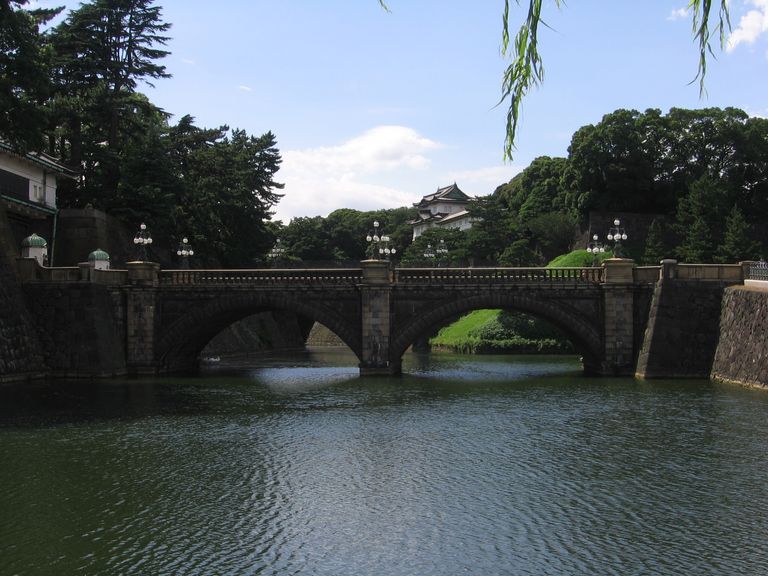We probably have many images of Japan in our minds and one of them is that the people there are always hard working and that the word vacation doesn't really rate among the most used vocabulary. This image may be true to some extent, because not having to work for one, two or even three weeks and going on a long trip is something that hardly anyone here in Japan would think of. This is just too bad, because we shouldn't put our own well-being behind that of our employer. But well, different countries have different values.
And even if the Japanese can't plan their own days off, there are at least a few holidays when in many places work is allowed to stop. And those days are highly anticipated, even though there are always businesses that need to open and employees who must show up to work on those days as well. But for most Japanese, the public holidays are a break they surely welcome.
One of these holidays is April 29th, "Showa no Hi" 昭和の日, Showa Day, which commemorates the former Showa Emperor Hirohito, who reigned from 1926 to 1989. Hirohito's birthday was already celebrated from the year 1927 , and then from 1949 this day became a public holiday (Tennō tanjōbi 天皇誕生日 "Birthday of the Emperor") for the whole country.
After Hirohito's death, April 29 first became "Green Day," a reminiscence of the former Tenno's love of nature. Since 2007, this day is now celebrated as "Showa Day," probably as an official remembrance of the previous emperor. The birthday of the current Reiwa Emperor (令和) Naruhito falls on February 23, which is now the current Tennō Tanjōbi.

The 63-year term of Hirohito, the Showa Emperor, saw several incisive events for Japanese but also for world history, such as the Japanese invasion of Manchuria in 1931, World War II and the resulting occupation of Japan, as well as Japan's postwar economic miracle. As head of state, Hirohito was at least nominally responsible for Japan's aggressive role in the World War, but since much evidence was destroyed, it is probably rather difficult to make a definitive judgment. The Americans also needed the emperor as a stabilizing element for their occupation policy and, for their part refrained from charging him as a war criminal.
The Japanese Emperor, the Tenno, is still the head of state in Japan but he holds no political power anymore. He is also the head of the shinto religion, which sees him as a direct descendant of the sun goddess Amaterasu. According to the Japanese constitution, the Tenno is now "the Symbol of the State and of the Unity of the People" and he and his family are living inside the complex of the imperial palace near Tokyo station. Emperor Hirohito is the only former Tenno, whose birthday is still celebrated today.


a look at the imperial palace, the residence of the Japanese Tenno and his family
For most Japanese, April 29 is just a normal holiday and I have often noticed that many people do not even know immediately what is being celebrated today. This also goes for many other public holidays throughout the year, which is quite an interesting phenomenon.
Perhaps most importantly, "Showa no Hi" kicks off "Golden Week," a sequence of three more holidays in early May. These include "Constitution Memorial Day" (憲法記念日 Kenpō Kinenbi) on May 3, "Green Day" (みどりの日 Midori no Hi) on May 4, and "Children's Day" (こどもの日 Kodomo no Hi) on May 5. In combination with the weekends people can finally take some very needed time out from the daily stress of everyday life.

We are also having some plans, but the weather doesn't look too good right now. Anyways, I will keep you updates and tell you more about that another time, so please stay tuned to this channel in order to make sure you don't miss anything.
And for today, we're going to enjoy "Showa no Hi", and appreciate the fact that today's Japan is just the way it is, and that the Showa time is now a thing of the past.
良い一日を Yoi ichi nichi wo (Have a nice day!)

